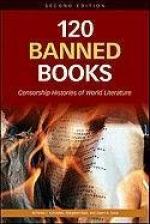|
This section contains 2,042 words (approx. 7 pages at 300 words per page) |

|
In the strict sense, censorship refers to government suppression of specific ideas, forms of expression, or speakers. Private corporations, media conglomerates, schools, and even individuals can effectively suppress speech as well, even though this is not censorship in the technical sense. In ancient Rome, the "censor" was a high public official who, among other duties, controlled public morals. Official censors still exist in some places, while elsewhere more subtle forms of censorship are practiced. Certain subjects have been regular targets of censorship, particularly those involving sex, politics, and religion, singly or in combination.
Sexual Content
The Athenian playwright Aristophanes (450–388 B.C.E.) had his plays banned in the fifth century B.C.E., in part because of obscenity. In 1818 Thomas Bowdler (1754–1825) published a "family edition" of Shakespeare (1564–1616), which he edited in order to omit any sexually-related content. In 1872 Anthony Comstock (1844–1915) and the New York Society for the Suppression...
|
This section contains 2,042 words (approx. 7 pages at 300 words per page) |

|


